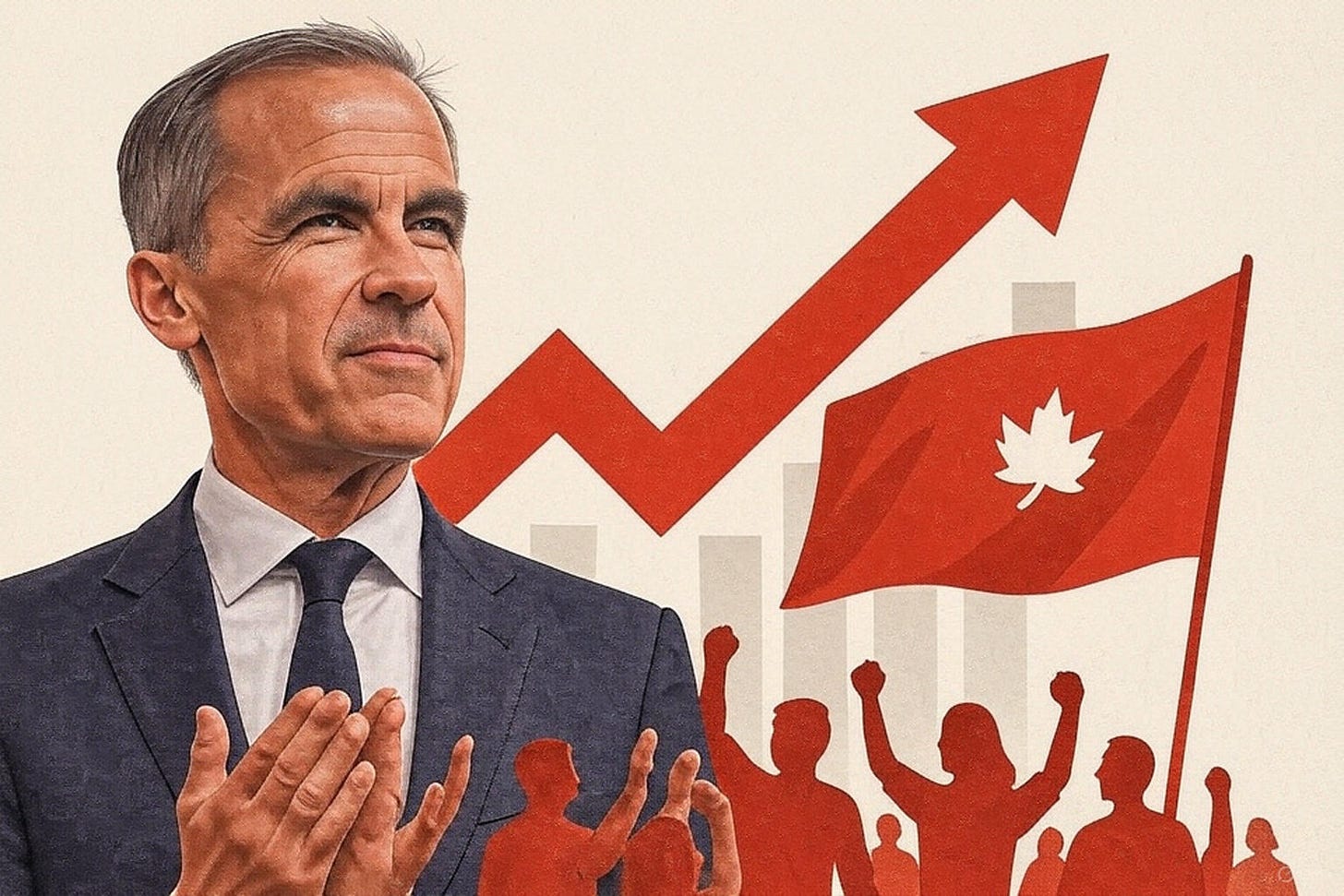As expected, Prime Minister Mark Carney learned from the mistakes of his predecessors John Turner and Kim Campbell by launching an early campaign with the shortest possible election period—37 days—so that he can capitalize on the high polling the Liberals have received over the last two months before they lose it. The trade-off: if Carney were to lose the election, he would become the shortest-serving prime minister in Canadian history.
Time may be short, but the Carney team leveraged the communications power of government to the hilt before Parliament dissolved and caretaker mode was entered. This included:
Scrapping the consumer carbon tax.
Committing to eliminate the GST for first-time home buyers.
Signaling security policy direction through a trip to France, the UK, and Nunavut, including a $6 billion NORAD announcement and a defence agreement with Australia.
Scrapping the capital gains tax inclusion rate increase.
Announcing, if the Liberals form government, a decrease of the personal income tax rate.
Convening a meeting with the Premiers to address the American trade threat, including announcing key worker and business supports.
Committing to a “one window” review process on national-interest infrastructure projects.
Committing to doubling the Indigenous Loan Guarantee Program from $5 billion to $10 billion and opening it to sectors outside energy and natural resources.
Lessons from 2015 in Reverse: Left Meets Right
Former Prime Minister Justin Trudeau famously won his 2015 majority government by “out-lefting” the left-wing NDP. While NDP leader Tom Mulcair pledged to run balanced budgets, Trudeau committed to deficit spending to fund infrastructure projects and key social spending initiative like the middle-class tax cut and the Canada Child Benefit. Trudeau kept his party to the left of centre through the course of his 9+ years as prime minister.
With the NDP at near-record low polling under Jagmeet Singh, Carney, on the other hand, has set his sights on the right. His recent string of pre-election announcements: axing the tax, increasing security spending, and reducing regulatory burdens for large-scale projects, could all just as easily have been announced by Conservative Leader Pierre Poilievre. Carney has not yet said a word about any diversity, equity, and inclusion, and has signalled his government will “spend less” so that Canadians can “invest more.”
The stark “parallel in reverse” feeling to the 2025 campaign versus the 2015 campaign was highlighted even more vividly through Poilievre launching his campaign from the same location—across the Ottawa River from Parliament Hill—that then-Leader of the Opposition, NDP Leader Mulcair did in 2015. For someone who was poised to easily win a majority government and be “Canada’s Next Prime Minister” for the last 18 months, Poilievre will now have to ensure his first steps on the election trail do not follow Mulcair’s path to defeat.
Key Dates
23 March: Election writs are issued
2 April: Trump reciprocal tariff threat
16 April: French leaders’ debate
17 April: English leaders’ debate
18-21 April: Advance polls
28 April: Election day
Star Candidates of the Day: Duelling media voices
Evan Solomon (Toronto Centre, Ontario), former host of CBC’s Power and Politics and CTV’s Power Play, and most recently employed by Gerald Butts-supported Eurasia Group will carry the Liberal banner in the riding of Toronto Centre, Ontario.
Andrew Lawton (Elgin—St. Thomas—London South, Ontario), former managing editor of independent right-wing media outlet True North (now Juno News) and a daily talk show in London will run for the Conservatives in the newly-redrawn riding of Elgin—St. Thomas—London South, Ontario. Lawton most recently wrote a biography of Conservative Leader Pierre Poilievre.
Both men have been placed in what are seen as “safe” ridings for their respective parties, which means we are very likely to see them as MPs in the next Parliament regardless of which party forms government.
With the future of the CBC at issue, we can expect to see voices like Solomon and Lawton’s at the forefront on the topic. We can also expect that Solomon’s CBC background will be used as “proof” of Liberal bias in the public broadcaster.




